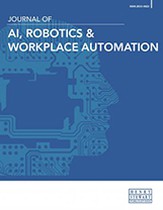Artificial intelligence (AI) from a regulator’s perspective: The future of AI in central banking and financial services
Abstract
Artificial intelligence (AI) is unlocking enormous opportunities. For central banks, AI has the potential to enhance regulatory efficiency and improve the data basis for monetary policy decisions. Machine learning (ML) can provide comprehensive, instant, granular information to complement existing macroeconomic indicators as well as having the capability to analyse big data efficiently, which can facilitate monetary policy decisions. As countries and companies conduct AI research and deploy the technology to the public, several financial authorities have recently begun developing frameworks, outlining their expectations on AI governance and use by financial institutions. This paper illustrates the current advancements in ML techniques and highlights the future trends in the adoption of AI by central banks and companies in financial services. It looks at the use of cloud computing and ML by companies and regulators to develop cost-efficient automation tools that better understand user needs, and presents how this will likely enable companies to adapt to rising trends in customer expectation in the future. The paper also explores the growing use of AI in anti-money laundering (AML) procedures, blockchain technology, and the development of Central Bank Digital Currencies (CBDC).
The full article is available to subscribers to the journal.
Author's Biography
Melvin Lopez-Corleone is a Senior Technical Specia list at the Bank of England. He leads the external engagement stream within the Innovation team. He actively collaborates with central banks at a global level and works with leading tech companies, universities and private/public sector organisations. In summer 2021, he was seconded to the Banks G7 Hub to support the UK’s G7 presidency. As of 2022, Melvin is a visiting speaker on RegTech and Innovation at Cambridge University.
Sholthana Begum is Head of Innovation and Regulatory Technology (RegTech) at the Bank of England. She has played diverse roles as a senior risk specialist, markets practitioner and accountant specialising in financial regulation and central banking. Sholthana is an experienced technologist, influencer and innovative leader. Her influence is substantial, and she was named in the 2021 DataIQ power list of the most influential people in Data. Sholthana is recognised as a thought leader and considered as a pioneer of RegTech at the Prudential Regulation Authority (PRA); her work is actively paving the way forward in advancing the Future of Finance. Sholthana’s counsel and advice is often sought after by other central banks and private bodies across the globe. Examples of this include being invited to high-profile summits, such as the G20 in Rome, and being an active guest lecturer at Cambridge University. Her achievements in technology and diversity have been widely recognised, most notably through her acceptance of the Tech Forward award in the 2019 Central Banking Awards, hosted in Singapore, and securing the 2022 Gender Equality and Inclusion Award.
Gracie Sixuan Li joined the RegTech, Data and Innovation division as a winner of the Bank of England Innovation Competition. She holds a bachelor’s degree in international relations from King’s College London. Her research interests include artificial intelligence and the development of fintech innovation. As the Event Director of a Centre for Central Bank Studies conference, Gracie has experience in directing large-scale international summits that shared regtech insights between international central banks and regulatory institutions.
